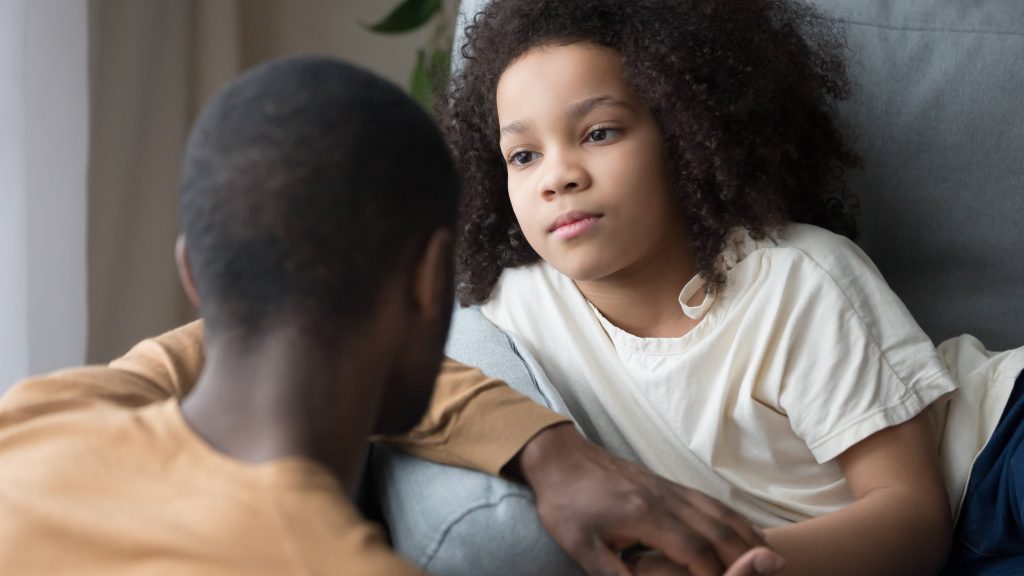
When a tragedy — such as a natural disaster, mass shooting or terrorist attack — occurs, you might feel helpless and it can be hard to talk to your child about what happened. Find out how to start the conversation and help your child cope.
How do I start a conversation with my child about a tragedy?
Talking to your child about a tragedy can help him or her understand what's happened, feel safe and begin to cope. Silence might make the event seem more threatening to your child.
If possible, choose a time when your child is likely to want to talk, such as before dinner. Ask your child what he or she already knows and what questions or concerns he or she might have. Let your child's answers guide your discussion.
How do I explain the tragedy to my child?
When talking to preschool children, get down to your child's eye level. Speak in a calm voice using words your child understands. Explain what happened and that you will keep caring for them. For older children, use gentle words and offer comfort. Encourage them to share any worries.
Consider your child's age when sharing details. Listen to your child for misinformation, misconceptions and underlying fears. Provide accurate information.
How might my child react?
Your child might experience fear, shock, anger, anxiety and grief. Your child's age will affect how he or she handles the stress of a tragedy. For example:
- Preschool children. Children in this age range become clingy or want to stay in a place that makes them feel safe. Some children might revert to wetting the bed or sucking their thumbs. Avoid criticizing your child for this behavior.
- Elementary and early middle school children. At these ages, children might fear going to school, have trouble sleeping and paying attention, or become aggressive. They might grieve in short segments and show persistent concern for their safety.
- Upper middle school and high school children. Older children might deny that they're upset. Some children might complain about aches because they're unable to identify what's bothering them. Others might start arguments or resist authority. Some children might experience depression, anger and sleep problems.
These reactions are normal. However, if your child continues to display these behaviors for more than two to four weeks, he or she might need more help coping. If you're concerned about your child's reaction, talk to a mental health provider.
What can I do to help my child cope?
To help your child process what happened:
- Remain calm. Your child will look to you for cues about how to react. It's OK for children to see adults sad or crying, but consider excusing yourself if you're experiencing intense emotions.
- Reassure your child of his or her safety. Point out factors that ensure your child's immediate safety. Review your home safety procedures. Make your home a comforting space for your child.
- Limit media exposure. Constantly watching news coverage of a tragedy can heighten anxiety. When older children watch or read news reports, try to do it with them.
- Avoid placing blame. If the tragedy was caused by human violence or error, be careful not to blame a cultural, racial or ethnic group, or people who have mental illnesses.
- Maintain the routine. To give your child a sense of normalcy, keep up your family's usual dinner, homework and bedtime routine.
- Spend extra time together. This can foster your child's sense of security. If your child is having trouble sleeping, allow him or her to sleep with a light on or to sleep in your room for a short time.
- Encourage the expression of feelings. Explain that it's OK to be upset. Let your child write about or draw what he or she is feeling. Encourage time with friends. Physical activity might serve as an outlet for frustration.
- Do something. Consider ways to help victims and their families. Hold a service related to the tragedy. You might work with your child to write thank-you notes to first responders.
What else can I do?
Caring for yourself after a tragedy is important. Pay attention to your feelings and lean on loved ones or talk to a mental health provider. Get enough sleep, eat a healthy diet and stay active. This will enable you to care for your child and serve as a role model for how to cope.
This article is written by Mayo Clinic staff. Find more health and medical information on mayoclinic.org.







